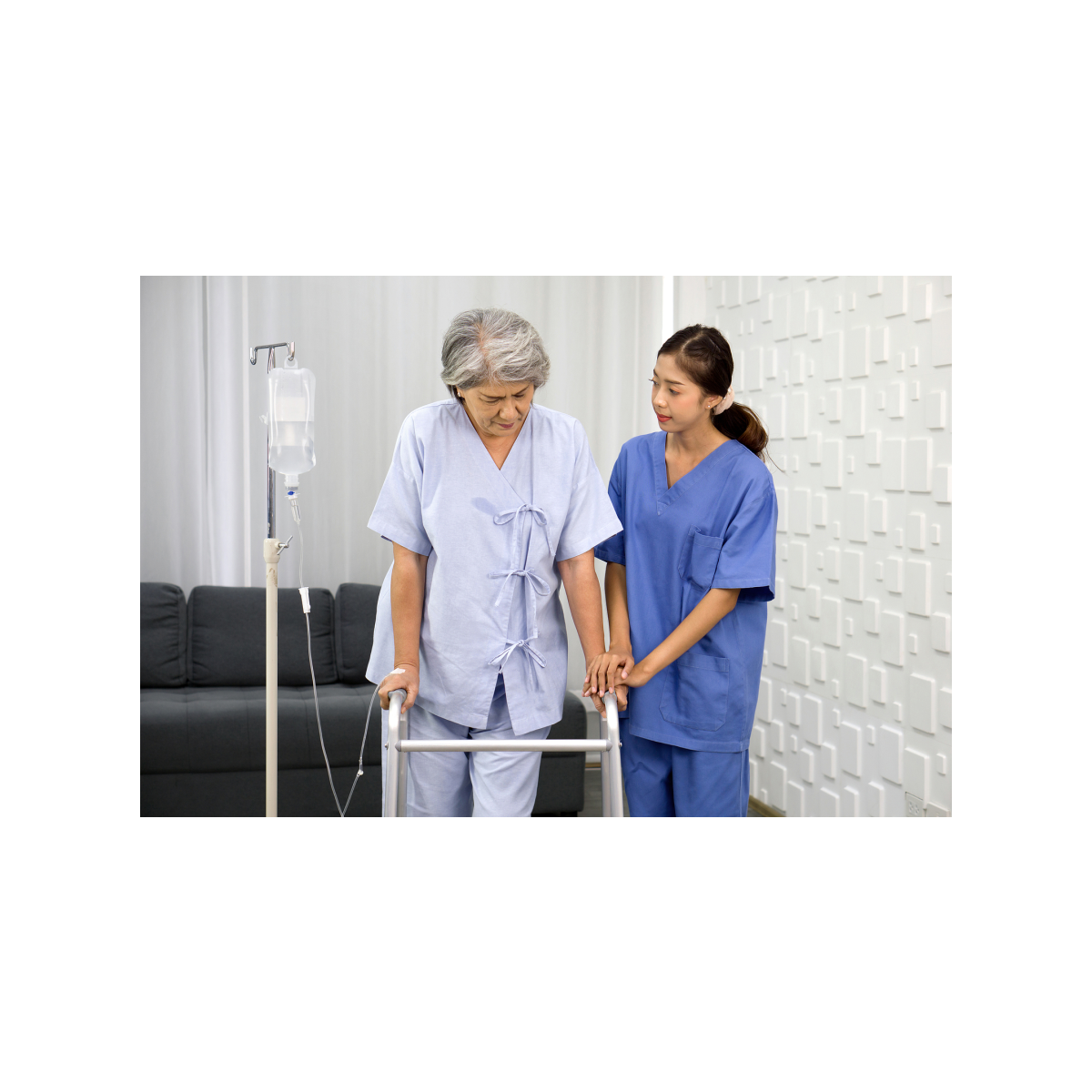When is Post-Hospital Care Recommended?
Before your mom heads home from the hospital, talk to her surgical team about her recovery at home. It’s one of the most common times post-hospital care is requested. They’ll have full instructions on the things she needs to do, and not do as she heals. Here are the different nursing services offered through this type of care.
Administering IVs and Injections
She may need IVs for fluids and antibiotics for a few days following surgery. This is especially true if your mom’s surgery and meds have left her groggy and less willing to drink full glasses of water several times a day.
Your mom may need injections to alleviate pain. Post-hospital care nurses can administer any IVs and injections she requires. They can put in IV lines and know how to give the injections she needs.
If the IVs are for fluid to prevent dehydration, her nurse knows the signs of dehydration and can consult with her doctors if she seems to be improving or not. She may need to increase or decrease the quantity of fluids accordingly.
Checking Her Vital Signs
Each day, her nurse can check her temperature for signs of fever, take her blood pressure, and monitor her pulse. If her doctor wants her oxygen saturation levels checked, that’s also an option.
Cleaning and Dressing Her Incisions
Your mom’s incisions need special care to prevent infection. Her doctor may tell her to leave them covered for a few days. Her pressure bandages must not get wet. So bathing is impossible, and she needs sponge baths.
Once the bandages can come off, the incision must be carefully cleaned and dressed with new bandages. She needs to check for signs of infection. A nurse can help with wound care.
Monitoring Her Prescription Pain Medication Usage
After surgery, your mom’s surgeon may prescribe stronger pain medications than she can purchase at a store. She needs to be careful taking these as prescribed. She also has to taper off them over time. Her home care nurse can help with medication administration.
Providing Dietary Guidance and Instruction
Her doctor may tell her to change her diet.. This is especially true if her surgery was related to heart disease, diabetes, or colorectal cancer. Her diet may be temporary or permanent, but your family needs to learn how to prepare meals she can eat.
For example, after a colon resection for cancer, your mom will need to avoid certain foods like seeds or berries. Learning all this is important for the healing process and future needs.
Schedule post-hospital care by calling an advisor and discussing your mom’s surgery and home situation. Go over what her doctor recommends and provide the required contact information to ensure her post-hospital care team can consult with her doctors and provide the care services she needs for as long as necessary.
